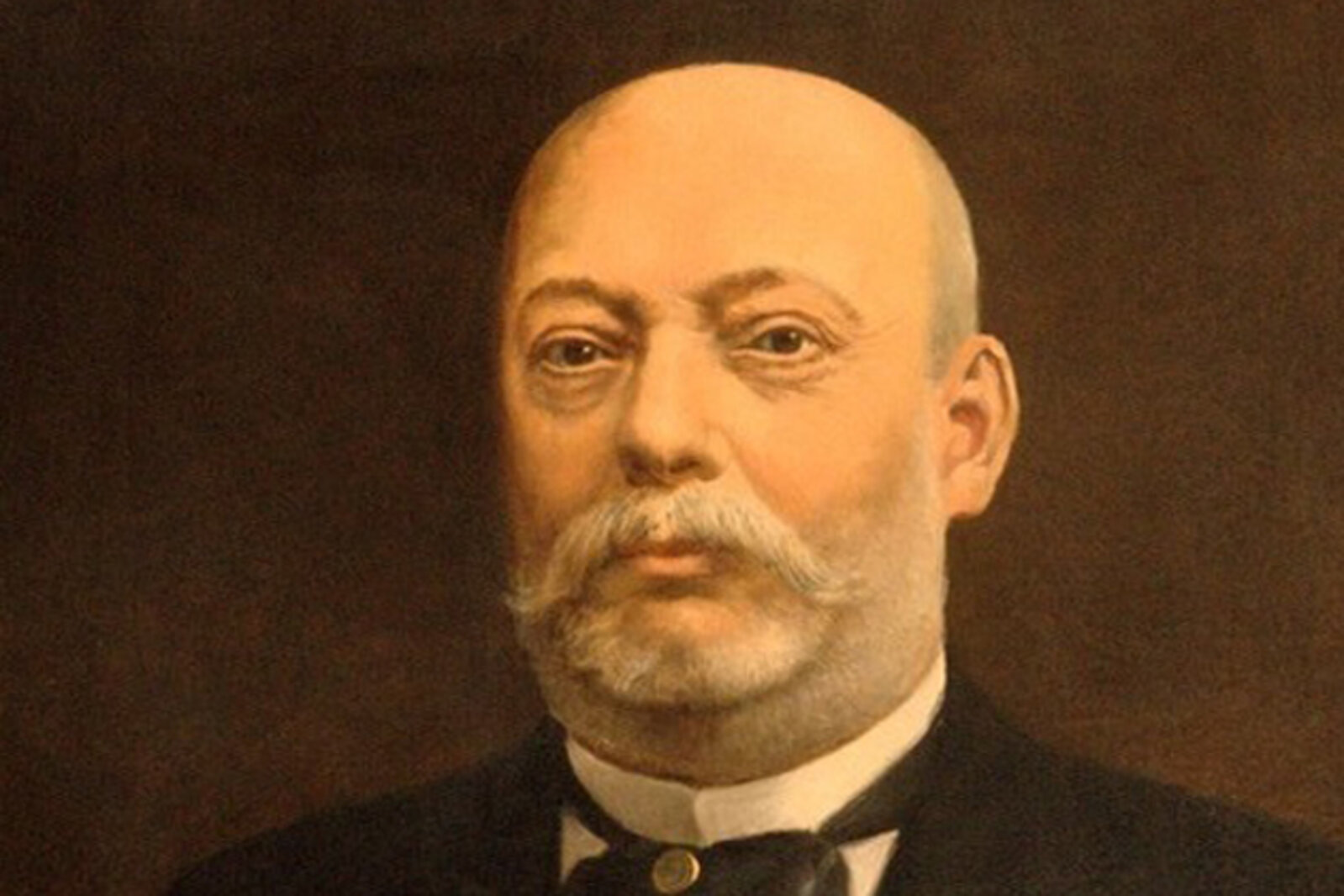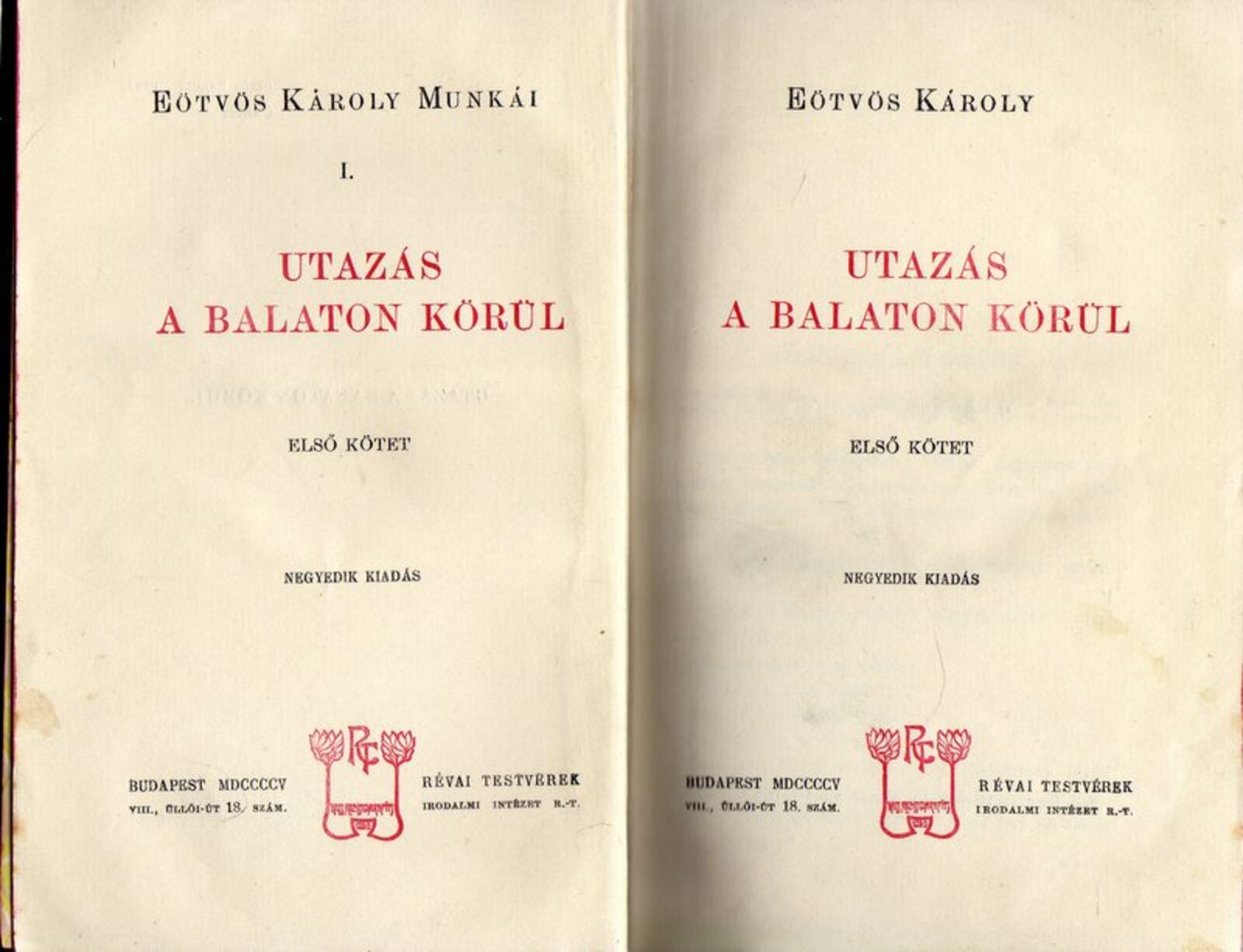The Chronicler of the Lake Balaton Region - The Life of Károly Eötvös
We all know the name of Károly Eötvös from his large-format work, the first travelogue of Lake Balaton entitled A Journey Around Lake Balaton. Eötvös's work is a fine achievement in itself, but the writer's biography also reveals interesting details.

In 1872, Károly Eötvös became MP for the district of Veszprém, then joined the Kossuth Party, a grouping that embraced independence principles. He often made his voice heard in Parliament, but a public engagement interrupted his career as MP. In 1882, he took on the defence of Jews widely considered guilty in the infamous Tiszaeszlár trial. As a result of his dedicated work, he won the case, proving the innocence of the defendants in a seven-hour defence speech.
As a well-known lawyer, he then took up legal assignments in Budapest, and although he was not allowed to be a member of the House of Representatives at that time, he did not abandon his political principles and ragularly came forwarrd with public statements. Thus he became a member of the so-called Turin Hundred delegation, the delegation that visited the exiled Lajos Kossuth in 1892. In 1906, he was elected MP yet again, but his mandate lasted only until 1910.
In addition to his political and legal activities, his literary works are also very important and valuable, published by the Révai Brothers in a 24-volume series. In 1865, Eötvös launched the political weekly Veszprém, and wrote many articles for Pesti Napló and Egyetértés. His literary works evoke the spirit and style of Mór Jókai and Kálmán Mikszáth, with plenty of humour, anecdotes and light-hearted stories.

Károly Eötvös had multiple ties to the Lake Balaton region (his mother was born in Balatonfüred), and the discovery of Lake Balaton took place during his lifetime. This is how his perhaps best-known work, A Journey Around Lake Balaton (1900) and later The End of a Journey Around Lake Balaton (1909), were written. In 1875, a small group of prominent people of the time (writers and historians) - Ferenc Salamon, Pál Gyulai, Sándor Szilágyi, Miklós Nagy and József Szentirmay - and the writer himself set off on a round trip. All of them people who hadn't known Lake Balaton before, with Eötvös as their guide. One by one, the wonderful stories of the region's past unfold before us: the love of Sándor Kisfaludy and Róza Szegedy, the legends of the region's castles, the milestones of the region's development (steamboats on the Lake, the history of the permanent theatre in Füred). The secret of Eötvös's book lies in the interesting stories on the one hand, and also in the finesse of his style and characteristic sense of humour.
The memory and remembrance of Károly Eötvös has endured. Both the county library in Veszprém and the cultural centre in Alsóörs bear his name. In Budapest, a plaque on the wall of the Abbázia café commemorates the work of Eötvös, also known as the "voivode". Sculptures of Eötvös can be found in Füred and Veszprém, the latter being the work of Miklós Borsos himself. His name also appears on the wall of Füred's Pantheon with wonderful lines by Dezső Kosztolányi. Eötvös's works on Lake Balaton have seen several reprint editions and are still entertaining reading today. We now conclude with a nice quote as a teaser, illustrating Eötvös's own style and his love for Lake Balaton:
I stopped as if had got frozen. A sort of spontaneous cry came to my lips. Then I looked, looked, and stared. My soul was seized with wonder, delight, inspiration, an inexpressible feeling. I had never dreamt of such beauty. I had never seen, never heard, never read of such a mirage. Cones with gleaming tops, vineyards glowing green, black patches of forests, green meadows, golden fields, a hundred villages, a thousand hillside dwellings, taverns, mills, roadside rows of trees, streams, canals, high cliffs, white houses, castle ruins dilapidated yet splendid, the solemn majesty of Szent György Hill and Badacsony, and that Lake Balaton as if it were laughing at me, and the reeds as if whispering to me, and on the far border of vision the sweet embrace, the intimate folding of sky, earth, the Bakony, Tihany, sea; and all this, averting each other, alternating, chasing, intermingling, and brightened by the golden rays of the sun behind me: behold, this is the image that overran my soul. All the minute quivers of life of the present, all the shadows of centuries past, all the ancient works of nature, all the little beauties made by human hands together, side by side. Is there any radiant spot like this in the whole wide world?
